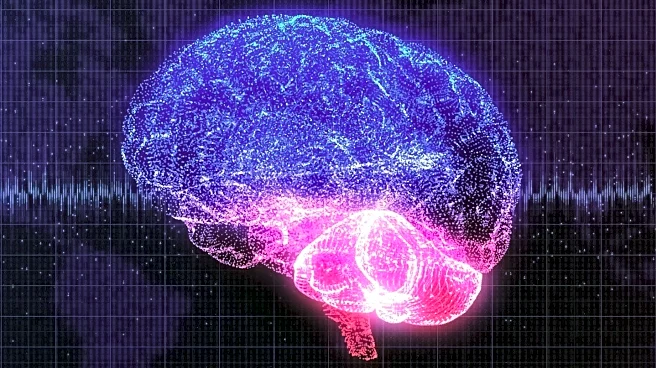What is the story about?
What's Happening?
A team from the University of Bath has developed a Fastball EEG test capable of detecting memory impairment linked to Alzheimer's disease years before symptoms appear. This three-minute test records brain activity as participants view images, identifying memory issues in individuals with Mild Cognitive Impairment (MCI). The test can be administered at home, offering a low-cost, accessible method for early screening. This development is significant given the effectiveness of new Alzheimer's drugs, which are most beneficial in early stages.
Why It's Important?
Early detection of Alzheimer's is crucial for effective treatment, especially with the advent of drugs like donanemab and lecanemab. The Fastball EEG test provides a practical, scalable solution for early diagnosis, potentially improving patient outcomes and reducing healthcare costs. By identifying memory decline earlier, patients can access treatments sooner, enhancing their quality of life and slowing disease progression.
What's Next?
The Fastball EEG test could be integrated into routine screenings at GP surgeries, memory clinics, or home settings, expanding its reach and impact. Continued research and development may further refine the test's accuracy and application, supporting widespread adoption in healthcare systems.















